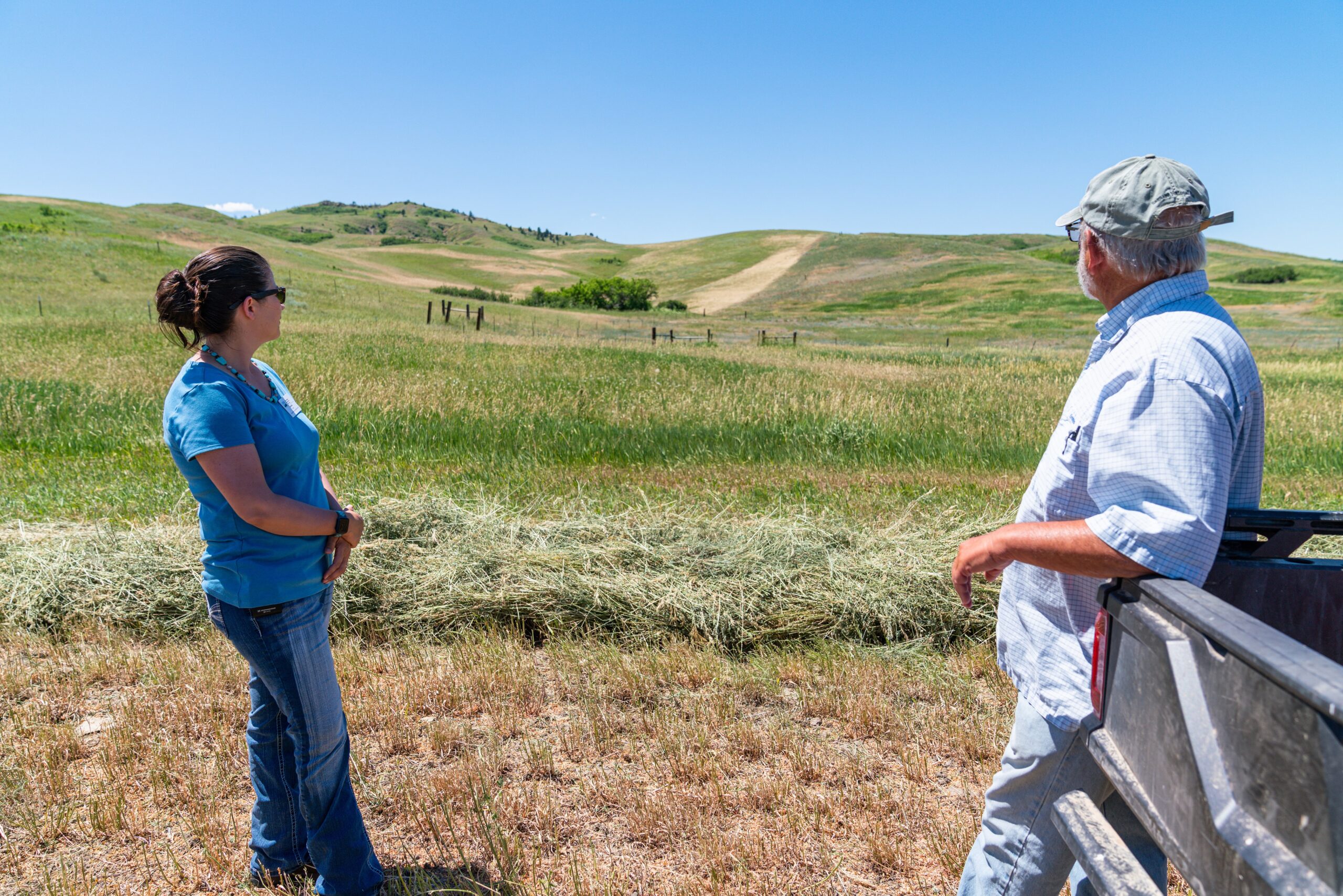The Natural Resources Conservation Service (NRCS) has several financial assistance programs that can be leveraged to improve and restore wildlife habitat. Their flagship program is the Environmental Quality Incentives Program (EQIP), where NRCS works with producers to develop conservation plans that outline practices and activities to address resource concerns on their property. In many states, EQIP is applied on a first-come first-served basis. However, since 2019, Montana NRCS has used a “Focused Conservation” strategy to direct its EQIP investments. This strategy emphasizes local and county-scale planning to identify primary resource concerns and develop strategies to address those concerns, ensuring that EQIP is delivered effectively. This process begins with Local Working Groups identifying natural resource goals and concerns for their county, which are then developed into Targeted Implementation Plans (TIPs) by NRCS and partners to guide on-the-ground implementation.
In February 2023, Pheasants Forever and NRCS hosted a workshop at the Montana Chapter of The Wildlife Society annual meeting to help facilitate partnership opportunities with NRCS for wildlife habitat conservation on working lands. Attendees included staff from state and federal government agencies with support provided by NRCS, Prairie Pothole Joint Venture (PPJV), Northern Great Plains Joint Venture (NGPJV), Ducks Unlimited, and World Wildlife Fund, among others. The workshop focused on helping partners better understand how to get involved in NRCS’s Montana Focused Conservation process to improve outcomes for wildlife. Topics discussed included the goals of Montana Focused Conservation, the process of developing TIPs, examples of successful partnerships, and suggestions for building working relationships with NRCS. It concluded with breakout groups that each proposed a TIP using a different scenario.
The PPJV and NGPJV were asked to help with this workshop because they have been actively working with NRCS in Montana and South Dakota. In Montana, the PPJV’s Science Integration Specialist, Jacquie Evans, helps NRCS communicate the wildlife values of practices and activities and provide regional context for their TIPs. She also assists NRCS with determining focus areas and prioritizing contracts based on their value as wildlife habitat using models developed by the U.S. Fish and Wildlife Service’s Habitat Population and Evaluation Team and other partners. The NGPJV’s Science Integration Specialist, Krista Erdman, supports Conservation Implementation Strategy (CIS) proposals in South Dakota. Krista helps NRCS partners integrate larger, regional initiatives, like the Central Grasslands Roadmap Assessment Map, and provides information on practice benefits to grassland birds.
Key takeaways from the workshop included the importance of partner involvement with Montana Focused Conservation and developing relationships with local NRCS and Conservation District staff. Workshop hosts emphasized that participating in Local Working Groups is an effective way to learn more about the resource concerns of agricultural producers and promote wildlife habitat as a resource concern in county Long Range Plans. While EQIP can provide significant financial incentives for practices that benefit fish and wildlife, an important component of successful TIPs is the development of local partnerships that leverage funds, capacity, and expertise to get projects on the ground. Montana Focused Conservation provides an exciting opportunity for wildlife focused partners to work with NRCS and deliver meaningful conservation that benefits wildlife and sustainable agriculture: a win-win model.

